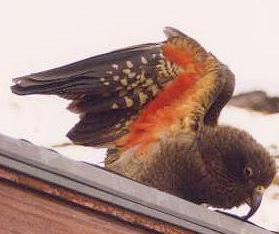Jacques Tati - Playtime
I couldn't resist an impulse buy of the 1967 Jacques Tati film Playtime on DVD when I was in Borders the other day, and was duly satisfied with my purchase. Even today, Tati's work seems so fresh and unusual. Comparisons are often made between Tati and the American tradition of Buster Keaton and Charlie Chaplin, but Tati stands apart from these masters by eschewing most of their overt slapstick (although the occasional pratfall serves to punctuate certain scenes). Every move is obviously carefully choregraphed, and there are some scenes that I think I will have to watch several times to discover all the gags. For film watchers in the 21st Century, the pace and rhythm of Playtime comes literally from another time: long scenes and minimal edits reveal how meticulously some of the scenes must have been rehearsed before shooting.
Perdu dans Tativille
Playtime also highlights Tati as a sound artist, and the digitally remastered Dolby stereo soundtrack on the DVD version makes the most of this key element of Tati's work. In the film, walls, windows and doors are used to completely block sound. This device is used extensively throughout the film, becoming a running gag. For example, we view the action occuring inside a building through a window, but because we (ie. the camera) is located in the street, we hear traffic noise and the footsteps of passing pedestrians, but the action indoors evolves before our eyes as soundless (and often ridiculous) mime.
Playtime is an extension of the riff that Tati took up in his earlier film, 1958's Mon Oncle: it's a gentle and often affectionate lampooning of postwar French life, and in particular of the impersonality and sterility of modern technology. In the earlier film, we at least glimpse Tati's Monsieur Hulot at home in his crumbling and convivial world of vieille France, with its facteurs on bicycles, gossiping café regulars and spinsterish concierges. By contrast in Playtime, Hulot seems completely cast adrift in a bewildering, noisy modern Paris "en beton" of high-rise office blocks, glass facades and cavernous interior spaces. Hulot is thrust hither and thither by chance encounters, engulfing crowds and capricious elevators.
Great fun, whimsical, and very, very different to any sort of cinema being made today, and a film that will likely bear multiple viewings.
Playtime is an extension of the riff that Tati took up in his earlier film, 1958's Mon Oncle: it's a gentle and often affectionate lampooning of postwar French life, and in particular of the impersonality and sterility of modern technology. In the earlier film, we at least glimpse Tati's Monsieur Hulot at home in his crumbling and convivial world of vieille France, with its facteurs on bicycles, gossiping café regulars and spinsterish concierges. By contrast in Playtime, Hulot seems completely cast adrift in a bewildering, noisy modern Paris "en beton" of high-rise office blocks, glass facades and cavernous interior spaces. Hulot is thrust hither and thither by chance encounters, engulfing crowds and capricious elevators.
Great fun, whimsical, and very, very different to any sort of cinema being made today, and a film that will likely bear multiple viewings.










0 Comments:
Post a Comment
<< Home